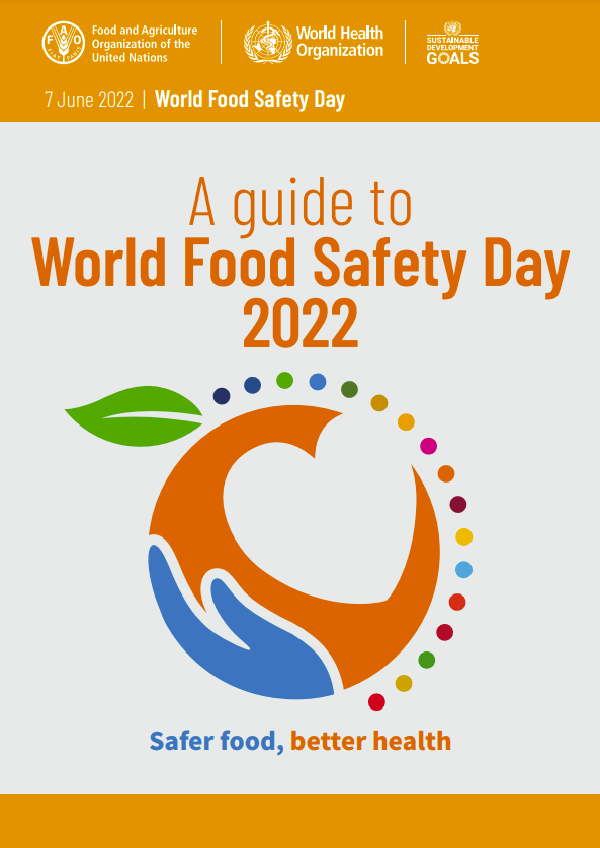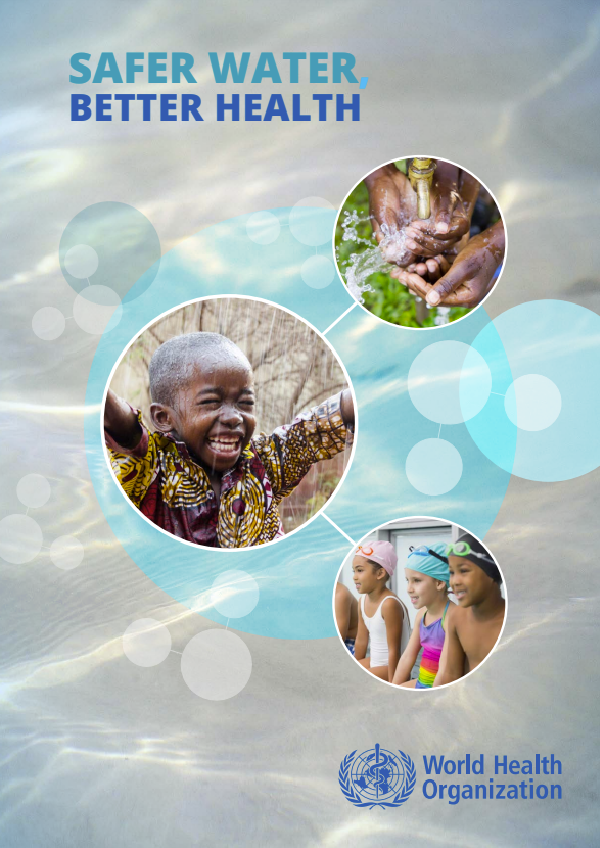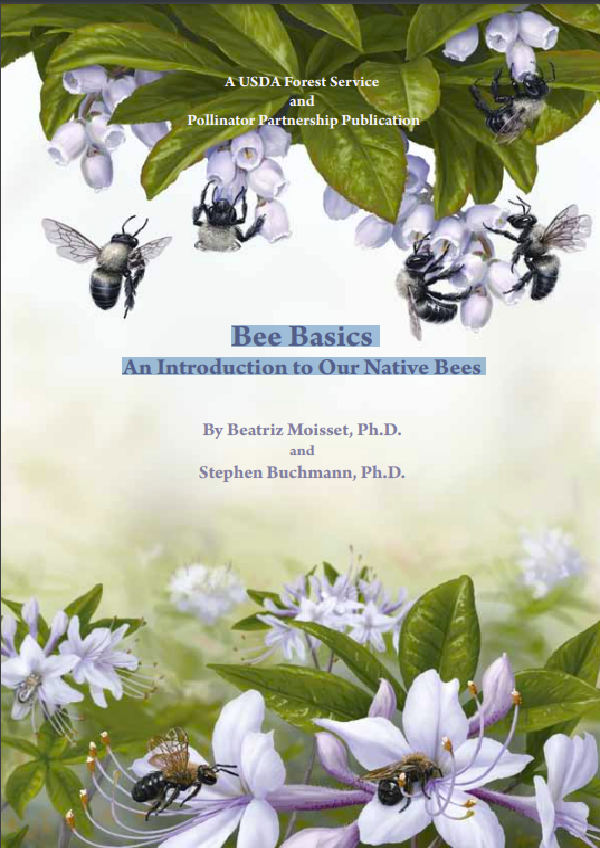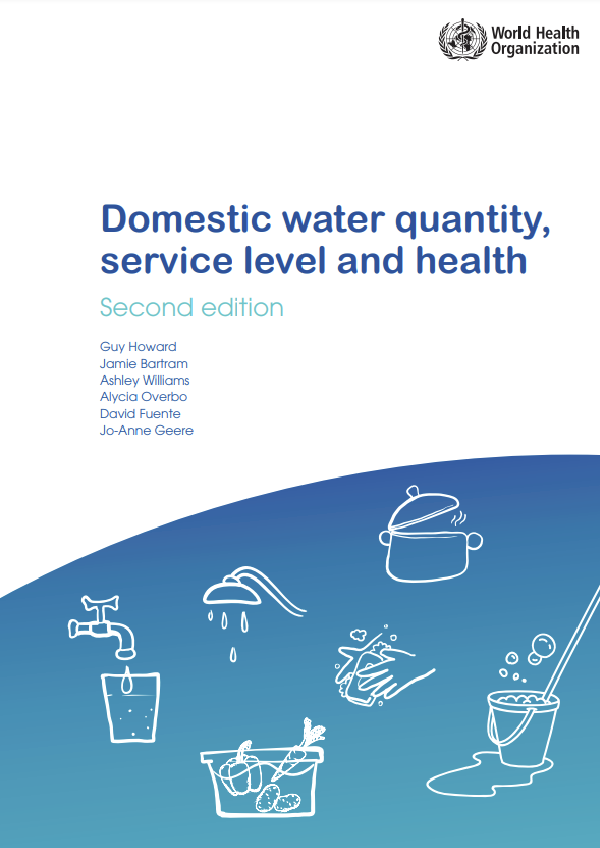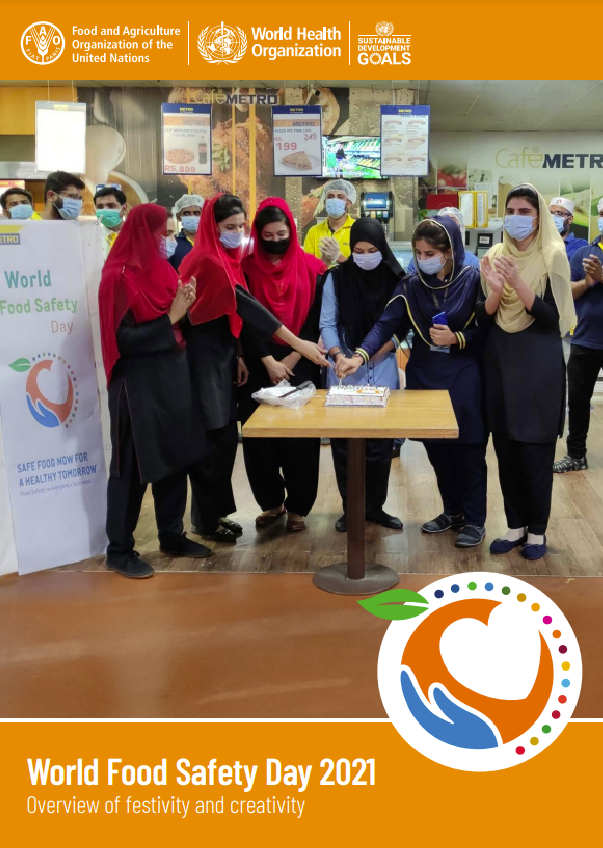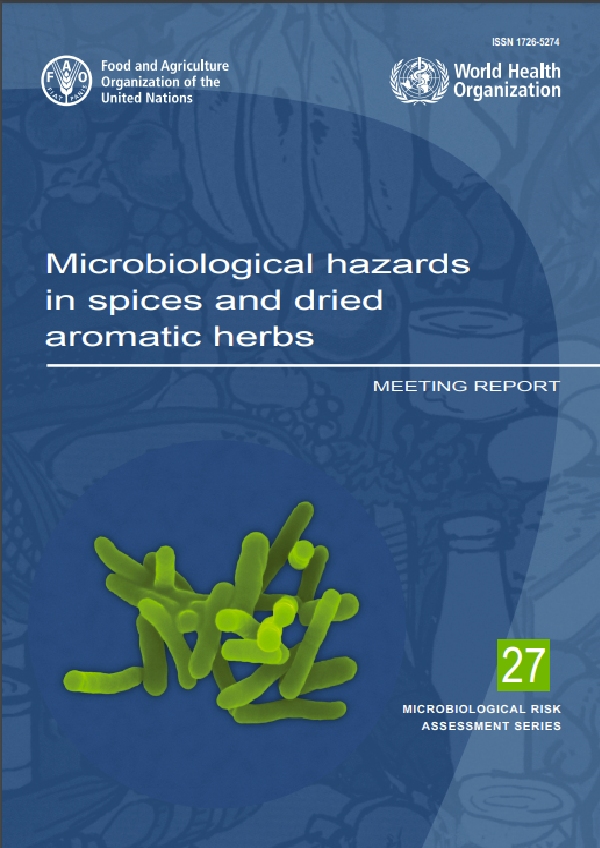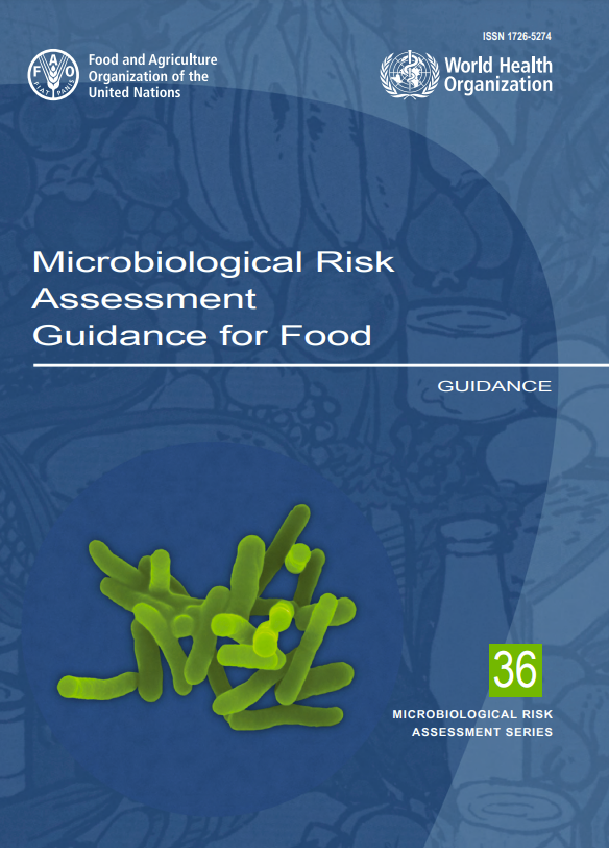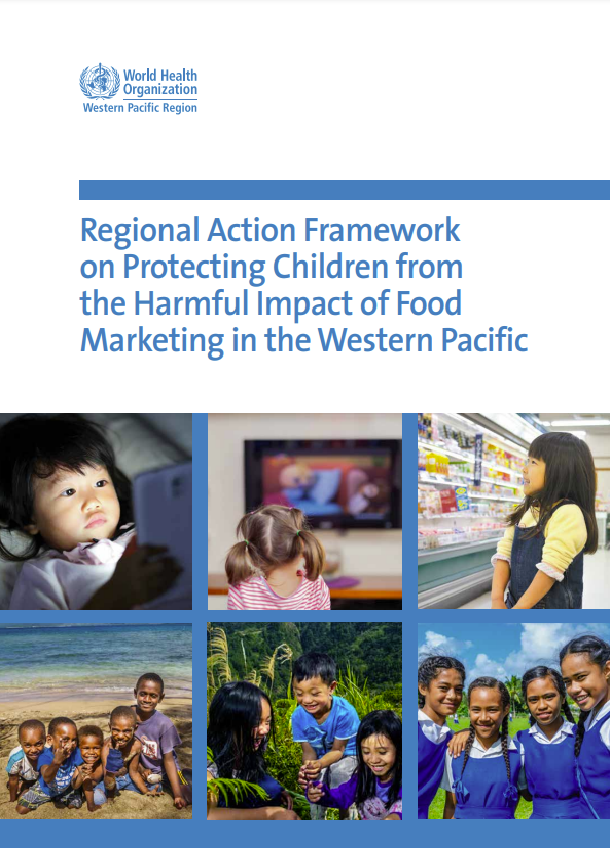World Food Safety Day is an annual celebration to draw attention to and inspire action to help prevent, detect and manage foodborne risks. This guide presents information for the fourth World Food Safety Day which we invite you to celebrate on (or around) 7 June 2022.
Safety first. We are all food consumers, and we all want our food to be safe. Why? Foodborne diseases range from mild to very serious and can even lead to death. From a social perspective, they contribute to absenteeism from school and work and reduce productivity. If we come together collectively to incorporate good food safety practices in our day-to-day lives, we can prevent foodborne illness and promote productivity. Each person has a role to play – whether you grow, process, transport, store, sell, buy, prepare or serve food – food safety is in your hands.
The United Nations established World Food Safety Day in 2018 to raise awareness of food safety. Year after year we see a growing number of World Food Safety Day initiatives that help increase the public’s awareness of food safety, which is a great achievement. We need to continue our work, together, to ensure that this trend continues and invite everyone to join us in the 2022 campaign.
Theme
Safer food, better health
Safe food is essential to human health and well-being. Only when food is safe can we fully benefit from its nutritional value and from the mental and social benefits of sharing a safe meal. Safe food is one of the most critical guarantors for good health.
Unsafe foods are the cause of many diseases and contribute to other poor health conditions, such as impaired growth and development, micronutrient deficiencies, noncommunicable or communicable diseases and mental illness. Globally, one in ten people are affected by foodborne diseases annually. The good news is that most foodborne diseases are preventable.
Our behaviour, the way we build food systems and how we organize food supply chains can prevent infectious and toxic hazards, microbial pathogens (bacteria, viruses and parasites), chemical residues, biotoxins and other noxious or dangerous substances from getting onto our plates.
We need to transform food systems to deliver better health, and we need to do so in a sustainable manner. Food systems policy-makers, practitioners and investors should reorient their activities to increase the sustainable production and consumption of safe foods in order to improve health outcomes. To make safe and healthy diets accessible for all, applicable agricultural, food, trade and industry development policies need to promote food safety. Systemic changes for better health will bring safer food, which is a critical enabler of longterm human development and a prerequisite for the achievement of the Sustainable Development Goals (SDGs).
Ways to celebrate
Here are some ideas to help you celebrate World Food Safety Day. It is important to ensure all physical events meet the local COVID-19 prevention measures. Gathering virtually is an alternative that allows for participation from afar.
- HOST A WEBINAR
Bring together key players in the food system to talk about everyone’s role in food safety. Follow the discussion with a question-and-answer session to provide tips and information to a virtual or in-person audience. - ORGANIZE A PUBLIC EVENT
Organize an event for the general public – concerts, festivals or fairs, food tastings, or cooking demonstrations with a food safety message. Music concerts and demonstrations can also attract virtual audiences. - LAUNCH A CAMPAIGN
Engage on social media. You can post our readyto-use communication materials in six languages or prepare your own videos, brochures, posters and tag #WorldFoodSafetyDay. - HOLD A SPORTS ACTIVITY
Organize a run, march, walk or dance to promote food safety. Fitness and exercise are a great way to encourage people to get involved in their communities for a cause. - REACH OUT TO MEDIA
Use radio, newspapers and magazines to generate awareness of food safety issues. Share World Food Safety Day information and materials with journalists, invite them to cover your events and activities to encourage more people to join. - ORGANIZE A TALK
Invite people who grow, process, sell or cook food to talk about or demonstrate what they do and why food safety is important. To make it virtual, share on a meeting or social media platform. - COLLECT PERSONAL STORIES
Document stories about food workers, farmers, health professionals or someone who has suffered a foodborne illness. Sharing experiences can help people understand just how important food safety is. The stories can be written, drawn, photographed, sung, dramatized or recorded. - MAKE IT FUN
Turn to the arts or make it a game. There are numerous ways you can learn about food safety or share your knowledge either in person or online. Run a competition or a quiz. Develop and act out a drama with friends, write a song or poem.
